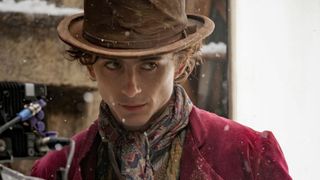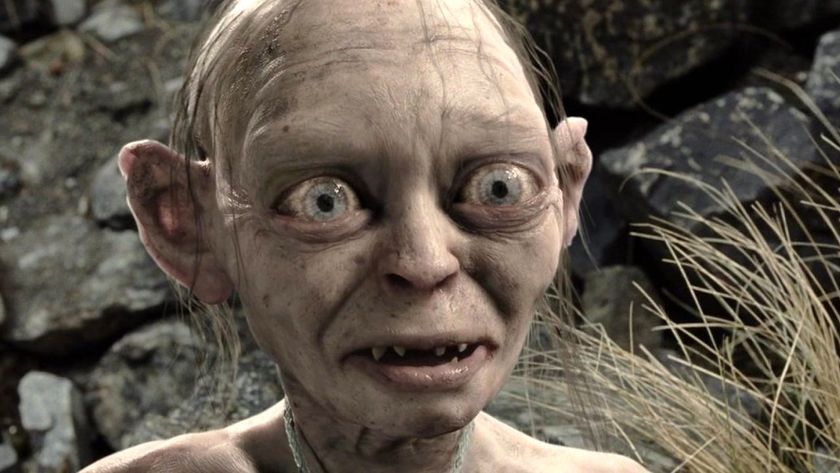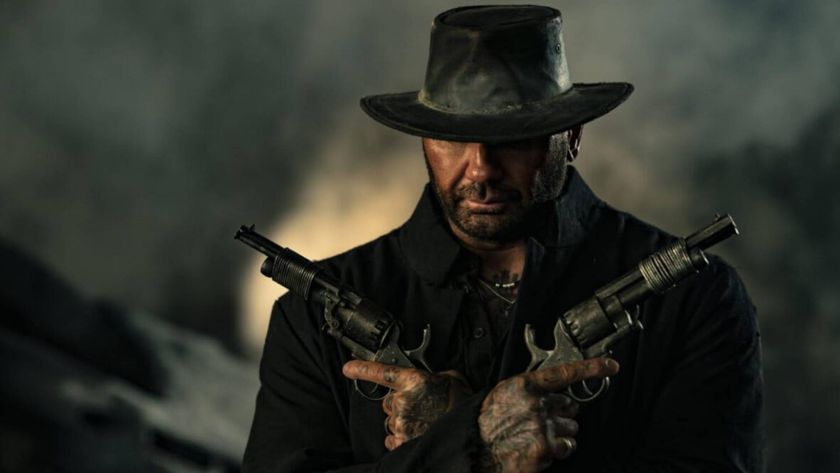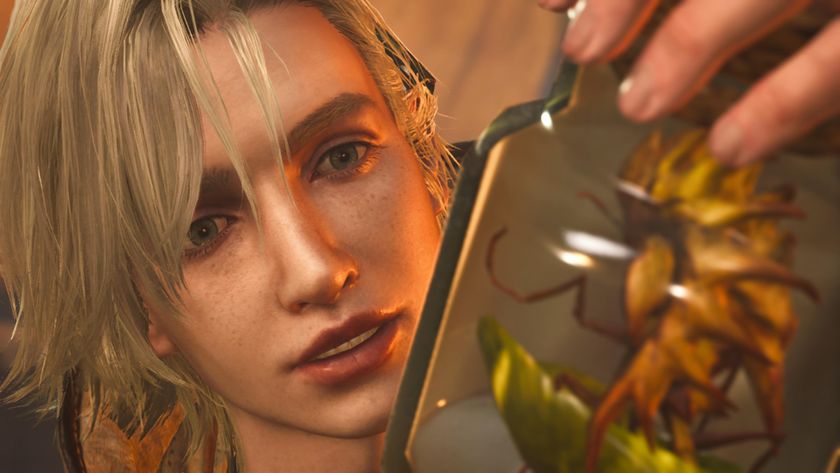Wonka director on Gene Wilder's legacy and finding the "emotional truth" in Roald Dahl's book
EXCLUSIVE: Writer-director Paul King breaks down the first trailer for his Willy Wonka origin story
Director Paul King is swapping Paddington for Oompa Loompas with Wonka, an origin story for Roald Dahl's infamous chocolatier, following him on his journey from ordinary man to proprietor of the world's biggest chocolate factory. Timothée Chalamet takes on the title role, joined by a supporting cast that includes Keegan-Michael Key, Olivia Colman, Sally Hawkins, and Rowan Atkinson. Willy Wonka isn't alone in his endeavors, either – the trailer introduces us to Noodle, played by newcomer Calah Lane, an orphan girl who shows Wonka the ropes as he arrives in a new city with big, chocolatey dreams.
Ahead of the release of the movie's first trailer, we sat down with the filmmaker in London to talk Chalamet, taking on an "unknowable" character, and the film's surprising double act. This interview has been edited for length and clarity.
Can you remember how you felt when you first read Charlie and the Chocolate Factory? Is that the kind of feeling that you're hoping to elicit when people watch this film?
It's exactly the feeling. I had a copy of Charlie and the Chocolate Factory when I was little. I remember absolutely loving it and reading it cover to cover so often the pages fell out. I remember what I most liked about it was how funny it was, how Willy Wonka is this extraordinary, amazing, magical figure, the Oompa Loompas, and the brilliant poems that Dahl writes as their songs – they're so funny, witty, and gleefully naughty, and that sense of naughtiness was very joyful to me.
When I revisited it as a grown-up, I realized how incredibly moving it is, and how much it's Charlie's story. [Dahl] was very interested in trying to write this Dickensian story of this poor little urchin kid who goes on to inherit the world in a Great Expectations sort of way. When I came back to it, I wept at the end in a very unexpected way, and I realized that what Dahl did in that book was kind of what I've been trying to capture with everything I've been doing since – trying to make something which has great comic set pieces and larger than life caricature-type people, but with a heart of gold and a real emotional truth to it and a way of hooking you in. If we can do any of that, I'd be delighted.
You previously referred to Dahl's version of Wonka as 'unknowable'. How do you approach a character like that to make them knowable, as you're striving to do in this movie?
That's definitely the challenge of it, because he's a very mysterious figure in the books. He's shut in this factory and nobody's seen him for years, and Grandpa Joe has some stories about him, but nobody's entirely sure how true they are. But I also felt – maybe misguidedly, but just probably from those childhood readings – that I did know who this person was.
Sign up for the Total Film Newsletter
Bringing all the latest movie news, features, and reviews to your inbox
There's a moment right at the end of the Gene Wilder movie when Charlie returns the everlasting gobstopper and [Wonka's] like, 'You did it, Charlie!' The love and pleasure in Gene Wilder's face of, like, wanting this kid to be a good kid and wanting to believe that there is goodness in the world, I felt that I understood that in a primal way. He's cynical in some ways and he knows that there are plenty of rotten nuts out there who need to go down the rubbish chute, but, equally, he believes in goodness, kindness, and hope. There was a kernel of that I really held on to. But this is somebody who's clearly been damaged by cruelty. He's a certain age, and he's had the slings and arrows of life, and to dig into that was a real challenge.

People might be surprised to see that the film isn't just about Wonka, he's got a double act going on with Noodle. What was the thinking behind the addition of her character?
The Willy we meet at the beginning of this movie is very wide-eyed and he has that almost childlike optimism that Timothée Chalamet is just incredible at encapsulating. Because it's the story of how you go from a normal person into the Willy Wonka we know, it felt like a good place to start with him as being very kind-hearted, very open-hearted. He needed a slightly more cynical person to show him the truth of the world, that not everyone is lovely, fluffy, and nice, and that bad things happen along the way. [Noodle] felt like a very good counterpart to him and I was really just interested in their friendship. Calah Lane is wonderful, and she's able to encapsulate this wise, 'old head on young shoulders' kind of character.
Was there one specific performance of Timothée Chalamet's that you'd seen and thought, 'That's Willy Wonka'?
No. I don't think he's ever done anything like this before. But everything I've seen him do, he's completely mesmerizing. [In] Call Me By Your Name, he was absolutely extraordinary. He's really funny in the Woody Allen film he did [Rainy Day in New York], and he's able to bring humor and heart to everything he does. He's also a terrific singer and dancer, but he just so clearly had a sense of who the character was, and the sense of who he could be.
There are darker elements to a lot of Dahl's books. Are there any darker elements in your film that we can expect?
I'm not sure my soul is quite as dark as Roald Dahl's. [Laughs] I've tried to channel his spirit as much as possible, so there's definitely some of the cynicism and hopefully some exciting bits and some scarier bits. I'm not sure I've quite got that 'Tales of the Unexpected', macabre imagination that he had, so it might be a bit more 'marmalade sandwich'.
Wonka arrives on the big screen on December 15. While we wait, check out our guide to the rest of the year's most highly anticipated movie release dates.
I’m an Entertainment Writer here at 12DOVE, covering everything film and TV-related across the Total Film and SFX sections. I help bring you all the latest news and also the occasional feature too. I’ve previously written for publications like HuffPost and i-D after getting my NCTJ Diploma in Multimedia Journalism.

It looks like the new Lord of the Rings movie Hunt for Gollum has been delayed by a year

Game of Thrones author George R.R. Martin had high praise for Resident Evil director's take on his fantasy short story, saying it "captures his voice better than anyone had in an adaptation before"
Most Popular



